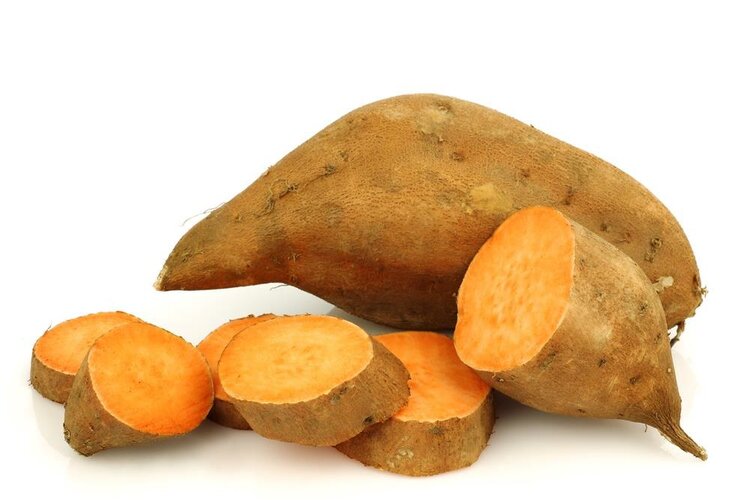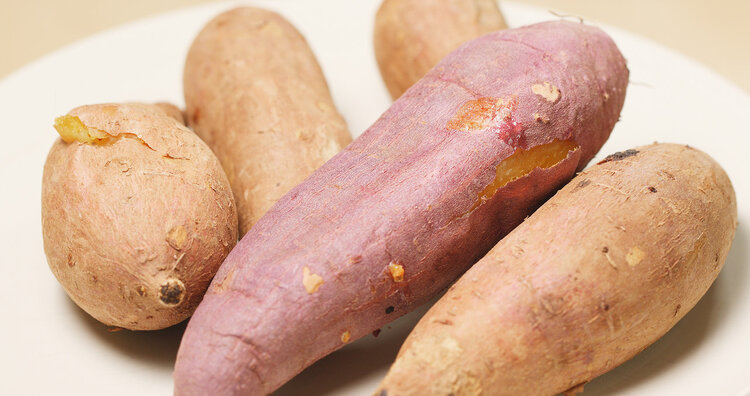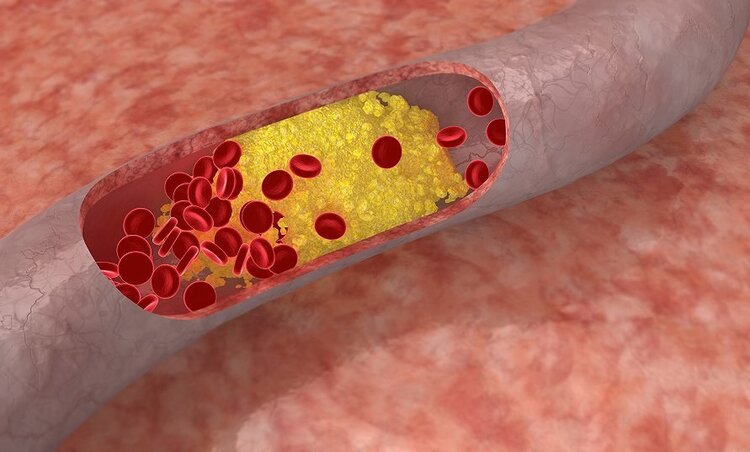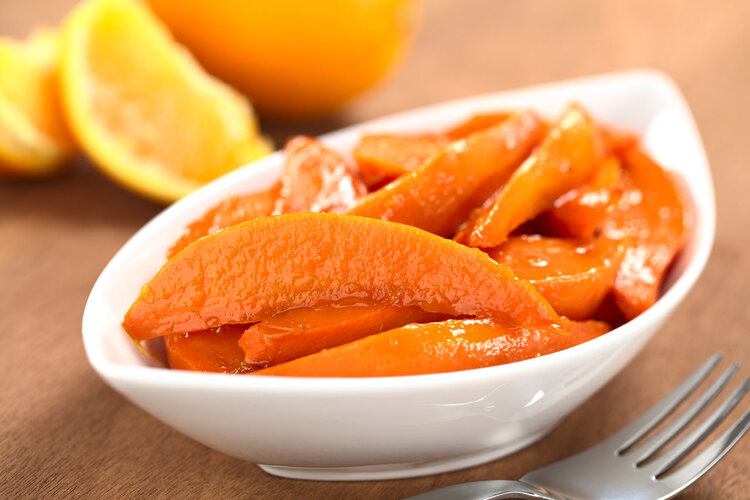Core Message: Sweet potatoes, as a seasonal food, are loved by modern people. Many consider them the "King of Longevity" and some research even suggests they are the "King of Anti-Cancer"! Can such a small sweet potato really have so many benefits?

1. Japanese Study of 260,000 People: Sweet Potatoes Can Fight Cancer
The anti-cancer effects of vegetables have always been a hot research topic, with studies often showing that broccoli and cauliflower can reduce the risk of colorectal cancer. The claim that "sweet potatoes can fight cancer" comes from a study conducted in Japan.
In 2014, a large-scale follow-up study of the dietary habits of 260,000 people conducted by Japanese scientists found that vegetables do indeed have some anti-cancer effects. They ranked 20 vegetables according to their effectiveness in inhibiting cancer cells. Cooked sweet potatoes and raw sweet potatoes occupied the top two spots on the list, with inhibition rates of 98.7% and 94.4%, respectively.
Why were sweet potatoes selected as the "Anti-Cancer Champion"?
Researchers noted that sweet potatoes are very rich in nutrients, especially protein. They also contain a large amount of dietary fiber, carotene, pectin, amino acids, various vitamins, and more than 10 types of trace elements such as calcium and potassium. These nutrients help protect the integrity of human epithelial cells, thereby blocking the carcinogenic process of toxic metals.

2. Sweet Potatoes May Not Cure Cancer, But They Have Many Benefits
Putting aside the cancer-fighting claims, sweet potatoes are indeed a "good thing" with rich nutritional value. For example, 500g of sweet potatoes contains 11.5g of protein, 2g of iron, 90mg of calcium, and 100mg of phosphorus. Consuming sweet potatoes in moderation can offer the following benefits:
Protecting Blood Vessels
One of the major benefits of sweet potatoes is due to their rich nutritional content, such as beta-carotene and vitamin C, which have anti-lipid oxidation effects. These can help delay the hardening and aging of arterial blood vessels. Additionally, folic acid and vitamin B6 in sweet potatoes can reduce homocysteine levels in the blood, thereby protecting blood vessels from damage.

Reducing Fat
Sweet potatoes are high in fiber, which helps absorb water in the gastrointestinal tract, lubricates the digestive tract, and promotes bowel movements. This can help expel toxins, fats, and sugars from the intestines, leading to a fat-reducing effect. Foods high in dietary fiber also create a feeling of fullness, reducing the intake of other foods and helping control weight. Sweet potatoes can also neutralize excess acid from consuming too much meat and eggs, maintaining acid-base balance in the body.
Assisting in Lowering Blood Pressure
Sweet potatoes are typical "high potassium, low sodium" foods. Consuming enough potassium can help speed up the elimination of excess sodium in the blood, thereby helping to control blood pressure.
Clearly, consuming sweet potatoes has many benefits! Sweet potato lovers are in luck!

3. While Sweet Potatoes Are Great, Avoid These 5 Pitfalls
Despite their many benefits, there are some precautions to take when consuming sweet potatoes. Eating them incorrectly can adversely affect your health.
Avoid Eating Raw or Too Much
Always eat cooked sweet potatoes. Raw sweet potatoes contain "gas-producing enzymes," which can stimulate the stomach to secrete a large amount of stomach acid, potentially causing heartburn, indigestion, and vomiting. High temperatures can destroy these enzymes. Also, sweet potatoes are high in starch, so eating too much can cause bloating, heartburn, and belching.
Do Not Eat the Skin
It's best to peel sweet potatoes before eating them, as the skin contains a lot of alkaloids, which can cause stomach discomfort. Especially avoid eating sweet potato skins with black spots, as they may cause poisoning.
Avoid Eating on an Empty Stomach
Do not eat sweet potatoes on an empty stomach, as their high sugar content can stimulate stomach acid production, causing acid reflux and heartburn.
Do Not Rely Solely on Sweet Potatoes
Sweet potatoes are low in protein and fat. If you eat only sweet potatoes for meals, it can easily lead to malnutrition. It’s best to eat them with other foods like rice or wheat.
4 Types of People Should Avoid Sweet Potatoes
Not everyone can eat sweet potatoes. Those with excessive stomach acid, stomach ulcers, or diabetes should avoid them due to their high sugar content, which can be detrimental to controlling blood sugar. People with diarrhea should also avoid sweet potatoes because of their laxative effect.
Extension: Can You Eat Sprouted Sweet Potatoes?
Sweet potatoes belong to the Convolvulaceae family, and their tubers can be eaten as grains while the tender stems and leaves can be used as vegetables. Sprouted sweet potatoes are safe to eat.
However, never eat sweet potatoes that have turned black. Black spots are often caused by infection with black spot fungi, which contain toxins like ipomeamarone and ipomeamarone alcohol. Eating these can cause poisoning, leading to symptoms such as nausea, vomiting, diarrhea, and in severe cases, high fever, coma, vomiting blood, or even death. So, never eat blackened sweet potatoes.
Conclusion: Small sweet potatoes have great benefits. Eating them in moderation is beneficial, but it's important to keep in mind the consumption precautions to avoid health risks from incorrect eating methods.
(Images from the internet)





